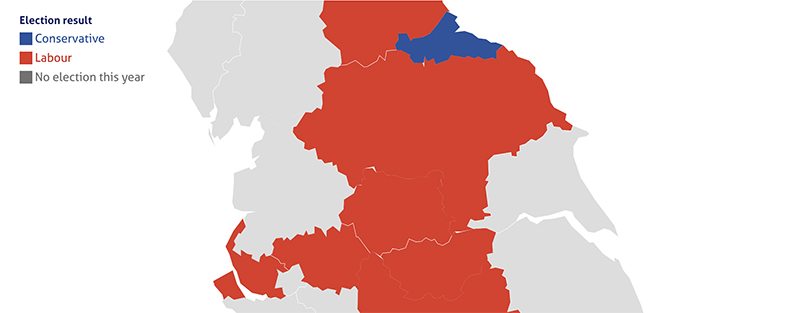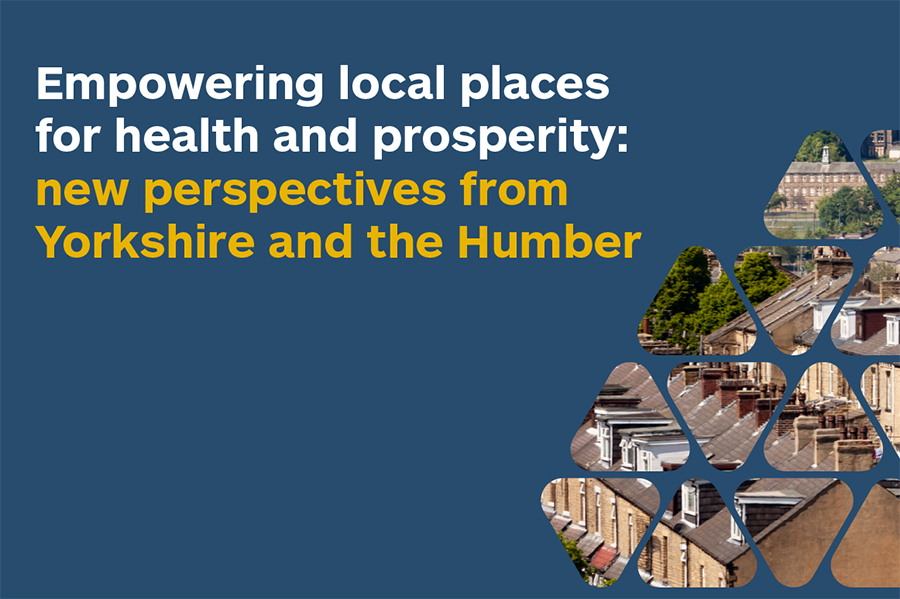In an election year in which climate policies are a key issue, the Yorkshire & Humber Climate Commission (a Y-PERN partner) is helping voters to cut through the noise.
Climate Talking Points calls for four key changes to national policy crucial for making real progress on climate and nature in Yorkshire and the Humber.
Evidence shows that people want action on climate. Without a change in national policy, Yorkshire and the UK are in danger of failing to meet climate targets and missing out on significant economic and social benefits.
“It’s imperative that we act fast, that we act now, and that everyone plays their part,” said Rosa Foster, Director of the Yorkshire & Humber Climate Commission (YHCC), which is an independent and politically neutral advisory body run by a secretariat at the University of Leeds.
“We work closely with organisations across all sectors, as well as with local authorities and local politicians in the Yorkshire and Humber region. We know there is not only consensus on what we need to do, but also plenty of evidence to support the policy changes. What’s needed now is for people on the doorstep to press for these and make sure the messages hit home.”
Crucially, YHCC is a key partner in the Yorkshire and Humber Policy Engagement and Research Network (Y-PERN). Y-PERN is bringing in expertise across a range of specialisms – climate, health, education, biodiversity etc – as well as communities and those with lived experiences, to inform local policy.
Regional action
The Climate Talking Points briefing, which will be presented at an online event on 13 March, states that rapid decarbonisation, prioritising nature, and building resilience are key issues – and that investment in these areas will create new jobs and business opportunities, lower energy bills, and bring down costs associated with poor health and climate impacts.
The Commission also says it is crucial to ensure that climate action reduces inequalities and helps people to pursue healthy, fulfilling lives.
Encouraging action is already taking place across Yorkshire and the Humber, with local and combined authorities investing in climate friendly measures such as the Leeds PIPES district heating network, and grants for reducing emissions aimed at small businesses in South Yorkshire. The South Yorkshire Mayoral Combined Authority has also run its own climate-themed citizens’ assembly.
In Hull, the Living with Water project is tackling adaptation to climate impacts, while the major industries around the Humber have big plans to get to net zero emissions, which are particularly important for the region’s role in global climate action.
And in York, the City of York Council, with partners on the Retrofit One Stop Shop York (ROSSY) project, has been awarded £3.37 million from Innovate UK to support, promote and encourage retrofitting work to homes across the city, helping residents to save money and to move the city towards net zero, while upskilling the sector with the latest techniques.
Cllr Claire Douglas, Leader of City of York Council and a YHCC vice-chair, said:
“Climate Talking Points provide the opportunity for wide-ranging debates about the existential challenge facing humankind as we look to the future. Not only do they provide regional government, campaigning and other organisations with a framework for what needs to happen, they provide guidance to national policy makers and Government in how to deliver the change required if we’re to halt the increasingly dangerous warming of our planet.
“I hope the public and decision makers will embrace Climate Talking Points and the direction they point us towards in delivering the economic, environmental and social benefits for Yorkshire and Humber of living in a cleaner world”.
Cllr Jack Hemingway, Deputy Leader of Wakefield Council and also a YHCC vice-chair, said:
“We are really proud to have three West Yorkshire authorities ranked A by CDP [Carbon Disclosure Project] for global leadership – but we know we need to go further and faster. The Climate Talking Points enable us to have that conversation.”
Cllr Paul West, Councillor for Wolds Weighton Ward and another YHCC vice-chair, said:
“As we enter spring in a few weeks’ time, we can all reflect on the turbulence that climate change has caused over the winter period. Displacing people, damaging ecosystems, creating uncertainty for millions of people. It is vitally important that we all play our part in reducing our impact on the planet. Through the work of the Yorkshire & Humber Climate Commission we can all add our voices to help shape our planet and region for generations to come.”
What policy changes are needed to unlock climate action across Yorkshire and the Humber?
In its Climate Talking Points briefing, the Commission has identified four key policy changes:
- Set out a clear pathway for reducing emissions and restoring nature and empower places to use local targets and go further and faster than national government if they wish.
- Create locally managed funding pots to allow key sectors to get on with acting, rather than wasting time competing and bidding for multiple, disjointed funding sources.
- Join up climate, skills and economy strategies to ensure they address the big challenges (poverty, ageing population, skills shortages and climate risks) together.
- Commit to a nature-first approach to infrastructure projects so that they can cope with future climate scenarios and nature is woven into all climate action.
Download the full Climate Talking Points here.














